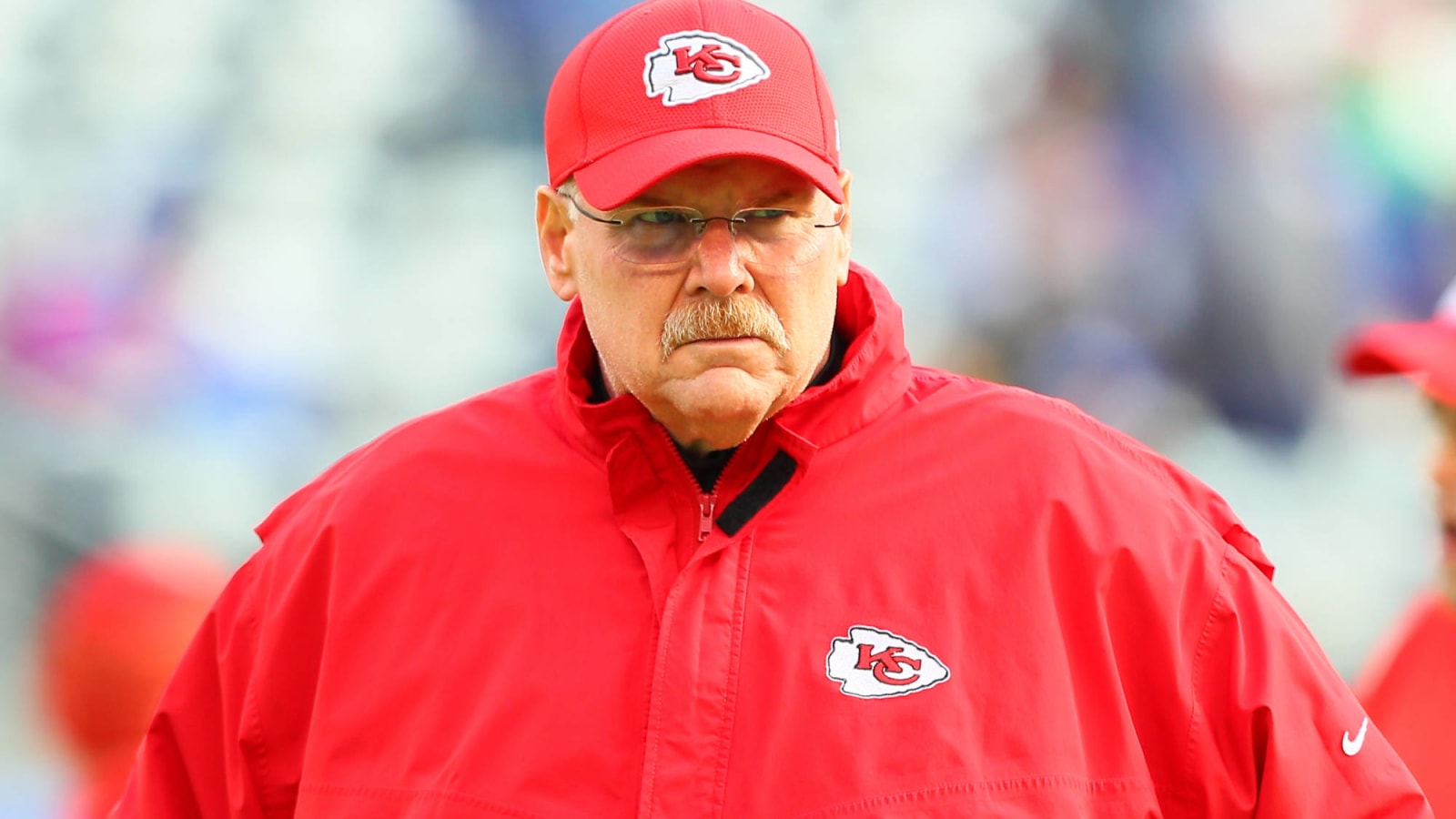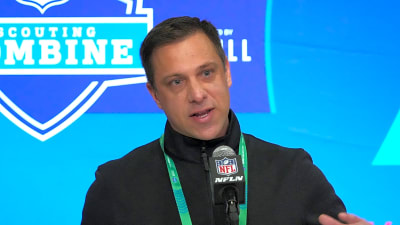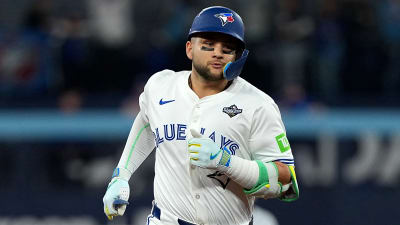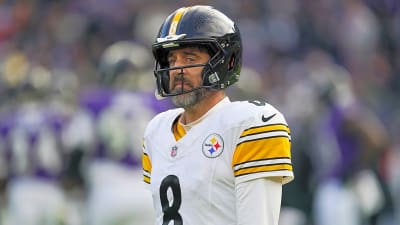
The Chiefs are no longer playing it safe
Weeks ahead of the official start of the new NFL league year, no team is making a splash — not even the ones hiring new head coaches — like the Kansas City Chiefs. While neither is technically official until March 14, the Chiefs have swung two significant trades that signal after years of hoping for the best from a pretty good if not great status quo, the team is committed to a new direction, even if it means greater risk for the head coach and general manager.
The Alex Smith deal with Washington yielded not only a third-round pick, but also cornerback Kendall Fuller, considered among the best emerging nickel corners in the league. Immediately it was seen as a major coup for the Chiefs, who reaped a big haul for a quarterback they were already in the process of phasing out, bolstered their secondary and freed up substantial cap room.
From there it seemed like the Chiefs would be best suited to stand pat, perhaps go after a modestly priced free agent or two, and do what they could in the draft without a first-round pick. K.C. has been a playoff team in four of the five seasons Andy Reid has been head coach, with a winning record in all five. Should Pat Mahomes play at a high level in his second year in the league — certainly not a dramatic stretch given the way many young passers are excelling early in the NFL in recent years — the Chiefs could conceivably challenge for the AFC. The limitations of Alex Smith have often been blamed, perhaps somewhat unfairly, for the Chiefs' shortcomings over that span. This was was a chance to find out for sure, letting Mahomes take the roster Smith worked with to the next level.
Instead, Reid broke from his history of countenancing volatile players and orchestrated a trade that sent away one of the Chiefs’ brightest young stars for two picks that offer little immediate benefit. For Marcus Peters and a sixth-round pick this year, the Chiefs receive a fourth-round pick in 2018 and a second-round pick in 2019. That’s a small return for the biggest ball hawk on a defense that mostly struggled in 2017, finishing 30th in DVOA.
There have been moments where Peters has shown himself not to be the most emotionally disciplined player on the field, most notably in a December game against the Jets where he hurled a penalty flag into the stands and exited the field in the final minutes despite not having been ejected.
That was the low point of the season, a sixth loss in seven games following a scorching 5-0 start in which the Chiefs were considered Super Bowl favorites after beating the Patriots and Eagles in the first two weeks of the season. There was another instance where teammate Justin Houston had to pull Peters away from defensive coordinator Bob Sutton, another strike against the talented young corner.
Reid generally in his coaching career has been willing to take on, and often tolerate, players with a flair for the combative. That doesn’t mean he's been unwilling to put his foot down on occasion. In 2012, when he was with the Eagles, the team cut defensive end Jason Babin in the middle of the season, a year after he posted 18 sacks for Philadelphia. But Babin was also then a 32-year-old defensive end, not a 25-year-old All-Pro corner. Reid at the time publicly explained the release of Babin as a means to get younger players on the field. No such excuse exists for Peters.
There have been rumors that Peters didn’t want to re-sign with the Chiefs and they just wanted to get a high return in a trade while they could. Seeing what they ended up getting in the deal, that’s an argument that should be squelched.
A lot of facile speculation comes to mind. Reid saw his former employer break through for its first Super Bowl win, triumphing with very daring play-calling, as his teams are never able to crest the mountain in the postseason. In fact, with the Chiefs, the ceiling has been lowered to the Divisional Round. That can make someone rethink a lot of closely held beliefs. Reid’s conviction could have been strengthened by general manager Brett Veach, who has shown a strong willingness to overhaul the roster in less than a year in the GM job. In fact, in just seven months on the job, Veach has executed seven trades.
Unfortunately, there’s no way to know for sure the exact dynamics of the situation. It’s tempting to project these sort of theories on it, because Peters is such an impressive playmaker, and so young, at such an increasingly important position.
Though the Peters trade now looks more like a desperate attempt to get as much for a player the team didn’t want to deal with, it strikes an odd note as both too little and too focused on the long term. The biggest pick received from the Rams can’t be used until 2019. A poor 2018 season for Kansas City presumably won’t cost Reid and Veach their jobs, unless it's something truly wretched like 2-14. On the whole, the timetable for them to deliver has been ratcheted forward.
The Chiefs need to overhaul the defense in a hurry. Getting Fuller and signing corner David Amerson to a one-year deal is a decent start, but the team is going to need to come up with a few savvy finds in free agency and the middle rounds of the draft, especially on the defensive line. Even if Mahomes has a smooth transition into full-time starter, he could use more help in the receiving corps. Unless they can package that extra third-rounder in a trade to move up, the Chiefs won’t get a first crack at drafting until the 54th overall pick.
Reid and Veach appeared to have won big in the Alex Smith trade, yet the quarterback’s heir apparent was already on the roster and being pushed for by a large contingent of the team’s fans. It wasn’t so much choosing Pat Mahomes as it was accelerating his ascent.
The Marcus Peters trade was clearly one that would cost the team talent and be met with public resistance. NFL teams are often risk-averse; that’s because people remember these types of risks. When they don’t work out, they tend to be the kind of things that cost people their jobs. Reid had 11 of 12 seasons of .500 or better in Philadelphia — along with five trips to the NFC Championship Game and a Super Bowl appearance — before a 4-12 campaign that got him fired. As an organization, the Chiefs have been all too willing to eventually cast off coaches who can’t get over the hump. Just ask Marty Schottenheimer. Perhaps that is why Reid and Veach decided to no longer incrementally add to a talented roster that couldn't find a way to break through in the postseason.
More must-reads:
- Marcus Peters can't wait to pick off Patrick Mahomes when Rams play Chiefs
- Report: Only three NFL teams showed interest in Peters
- The 'Active NFL 5-passing-TD games' quiz
Breaking News
Trending News
Customize Your Newsletter
 +
+
Get the latest news and rumors, customized to your favorite sports and teams. Emailed daily. Always free!








